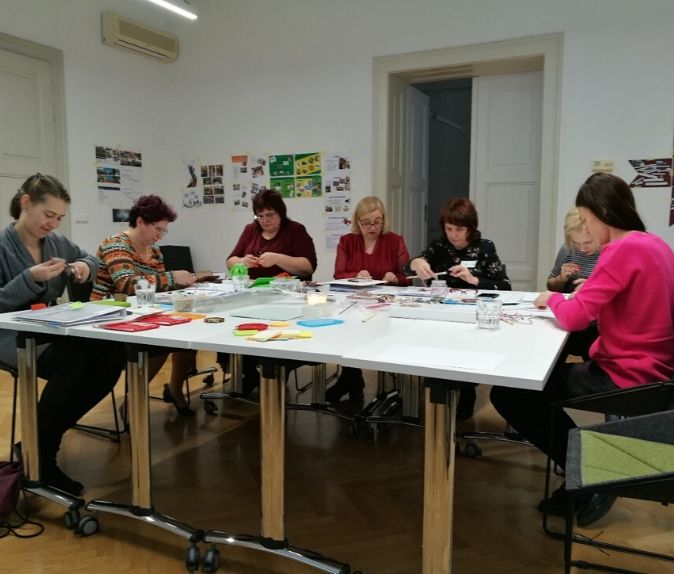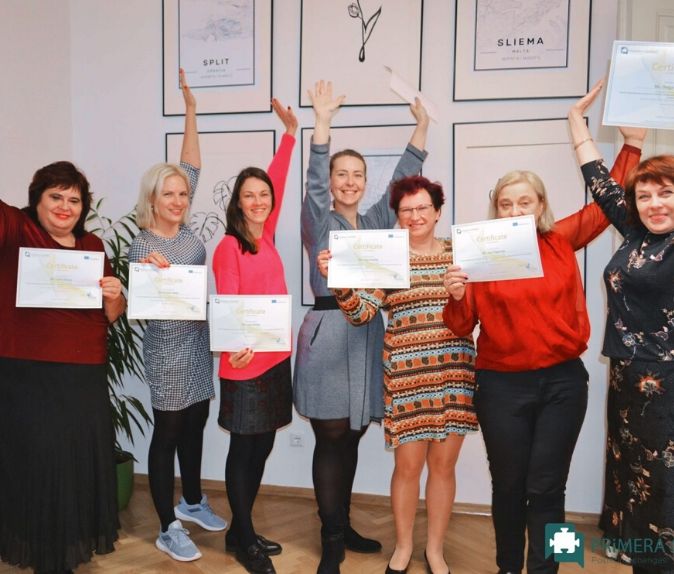Career Development Survival Kit: Enhance Employability and Improve Career Prospects of Teachers and StudentsErasmus+ course summary
Our world is changing rapidly. The way in which work is organised is shifting in response to political, economic, social, environmental and technological influences. Career development can be used to help societies, individuals and organisations to respond to and shape such changes. Career development is an individual and social good. It can be a critical lever for optimising the functioning of the labour market and supporting individuals to manage learning and work throughout their lives. Through participating in the Career development Erasmus+ programme individuals asses and develop their 21 career competences, which help them learn, raise their self-awareness, plan their career goals, regularly reflect on their career path, find work, manage to balance different life roles, make professional changes, deal with career challenges and be more satisfied in their professional life. Through exciting exercises, inspiring discussions, deeper reflection, play roles and peer feedback participants will learn how to use exercises, questionnaires, work sheets and other materials for career guidance in their work contexts. Being skilled in career competencies themselves, teachers will be empowered to support their children and students to develop their own career competences. "Teaching is the one profession that creates all other professions." – Unknown author
Session dates
Ljubljana, SI29 May - 3 June
6 - 11 November |
FeaturesRelated |
Open for registration.
Increase your employability
Improve career prospects of your students by first reflecting upon your own career as a teacher.
Course Content
PROGRAMME DAY-BY-DAY
Training usually takes place between 9:00 am and 14:00 pm, followed by after-class activities, that are optional.
DAY 1 We start off with an introductory meeting, explanation of practical arrangements and presentation of the participants and timetable. The participants are encouraged to express their expectations, needs and wishes regarding the content of the programme and learning methods. * We continue with the use of different tools, such as life and emotional curve, coaching cards, career thermometer, life wheel, etc. for reflection of one's own motivation, goals and dreams, as well as current career and its possible changes. Everybody assesses its own management competencies to tell which should be developed and worked on. DAY 2 Relevant theoretical models (e.g. Parsons, Holland, DOTS, Krumboltz) and skills for a 21st century career management be presented and basic terminology introduced. The participants are informed about the relevant career guidance policies and labour market and encouraged to relate the received knowledge to their own career development. They also engage in the exercises that can be adjusted for different uses in the classroom. DAY 3 Identification of different tools and techniques (e.g. values diamond, check lists, Dilts pyramid) for identification of one's own values, skills and goals in relation to the four biggest influencing factors (self, family, work, wider environment). We compare and contrast them with the findings of the self-analysis, which gives us insight to the future career path. Half-day excursion. DAY 4 The participants set medium and long-term goals for their career using appropriate coaching tools (e.g. GOAL and GROW models) and design their own career plans. In order to realise all this, case-specific strategies are identified, possible obstacles tackled and strategies how to overcome them discussed. The concept of fixed and growth mindsets by Carol Dweck is introduced and practiced. DAY 5 The analysis of gained knowledge and skills and key learning points are discussed. We share ideas about the ways colleagues and students can be supported in their career management, plan the follow up activities, dissemination and implementation of learning outcomes. DAY 6 Evaluation and farewell. Documentation and certificates of attendance. * Some changes in the programme are possible - the content of the course is always adapted to the participants previous knowledge, expectations and requirements. The participants receive the Informational Booklet a few weeks prior to the start of the course. |
ERASMUS+ COURSES BY PRIMERA
Interact confidently and effectively with others to build networks.
BLOGS
Read about teachers' experience and the topics of the Career Development course.
INTERNATIONAL ERASMUS+ LEARNING WITH PRIMERA
Become a member of Primera's international learning community.
Your network is a family you choose. |
ERASMUS+ COURSES BY PRIMERA
Create your own career path and support students in thinking about their career. |








